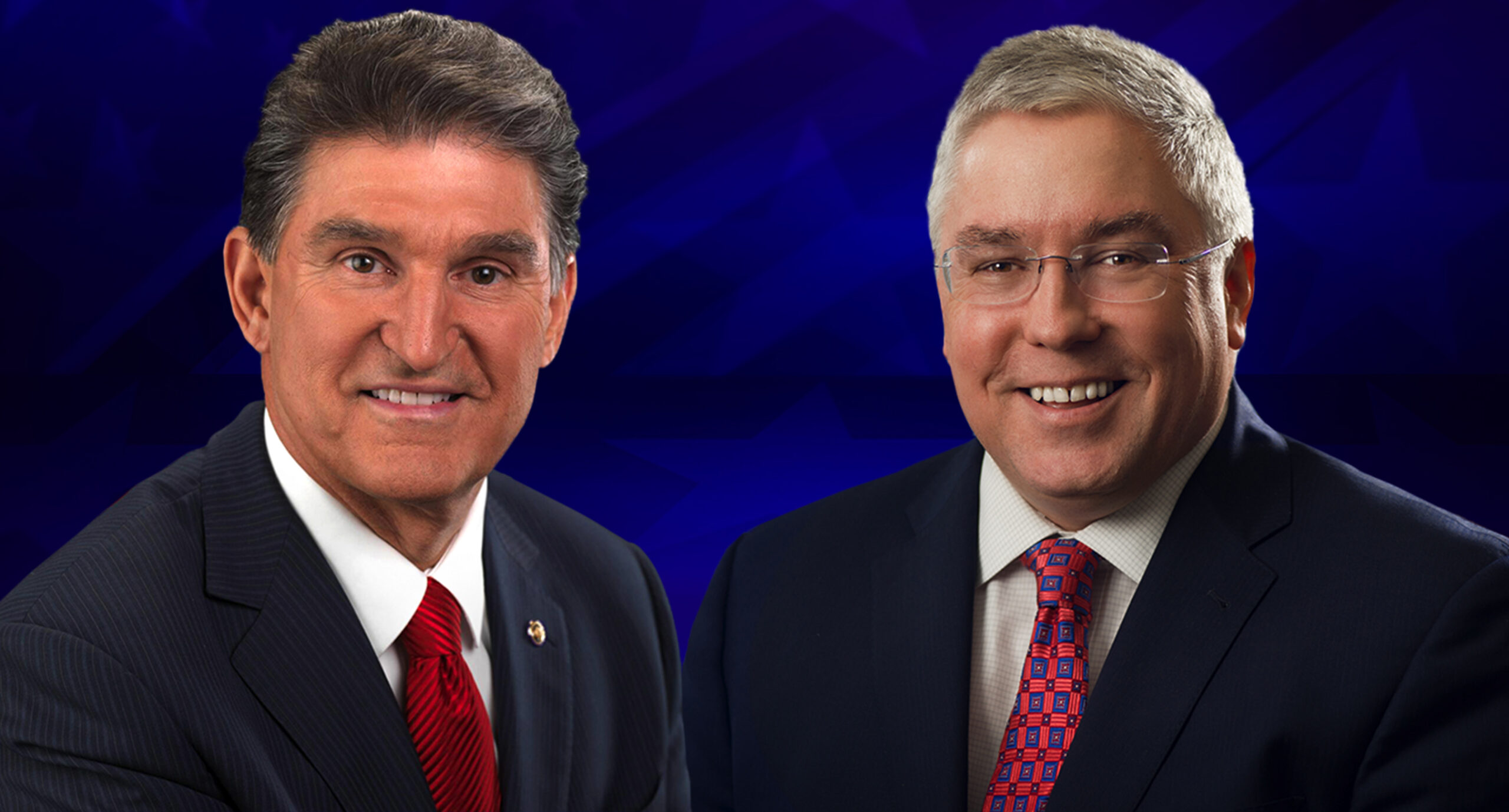Finance
How this small-town dentist couple set their personal finance goals

“The property which houses my clinic is on rent which I will have to vacate sooner or later. I had already taken a professional loan of ₹15.11 lakh when I started my practice. I needed money for setting up my dental clinic and also for meeting my personal financial goals,” Akshat Agarwal says.
Early investment journey
Gondia is also known as ‘Rice City’ due to the abundance of rice mills in the area. “People mostly invest in land and when they need money get into informal lending at a high interest rate. I did not want to do it,” he says.
After consultation with relatives and friends, Agarwal ended up investing in more than 10 mutual fund schemes. He also created a stock portfolio. “One of my friends connected me with a mutual fund distributor (MFD) who made me start systematic investment plans (SIPs) in mutual funds. A relative later told me that distributors get commission from mutual fund companies .My distributor had not shared details of the schemes in which I had invested. I did not know that I could track these investments by myself,” he says.
Meanwhile, Agarwal lost about ₹50,000 after dabbling in the stock markets in 2021. “I was clueless about how to set things right and I needed somebody to guide me,” he says.
A random google search landed him on the website of SahajMoney, a financial planning firm founded by registered investment adviser (RIA) Abhishek Kumar. Agarwal had no idea about Sebi-registered RIAs or fixed-fee financial planning model till then. To be sure, RIAs are authorized to impart unbiased financial advice and barred from earning commissions from the sale of financial products.
“When I came to know that RIAs only charge a fixed fee for the advisory, I was impressed,” he says.
Personalized guidance was another big plus. “I had always preferred a personal tutor over coaching classes. And when Abhishek sent me an excel sheet in which I was supposed to share details of all my existing investments and also asked questions about my risk profile, it struck me that nobody had ever sought these details from me. The others would only push a product irrespective of whether it suited my risk profile or not,” says Agarwal.
View Full Image

View Full Image
End-to-end financial planning
RIAs follow a process before creating a financial plan. They seek details of existing savings, investments, liabilities, expenses and financial goals. They also analyse their clients’ risk appetite based on a few questions. It helps them allocate their funds in debt and equities in the right proportion. Not only do they recommend investment products, but also advise on loans, insurance and saving taxes.
Agarwal didn’t have much idea about insurance either. He did have a health insurance policy of ₹5 lakh coverage from a public sector insurer. “I wasn’t aware that insurance and loan advisory will be a part of the package,” he says. On Kumar’s advice, Agarwal bought a life insurance cover of ₹2.5 crore. His wife took a term life cover of ₹1.5 crore. She was paying an annual premium of ₹1.25 lakh for an unit-linked insurance plan, but surrendered the policy and replaced it with the term plan. Besides a family floater health insurance plan from a private insurer, Kumar also suggested that Agarwal buy professional indemnity insurance and property (clinic, machinery, fire) insurance.
The right direction
Kumar asked Agarwal to separate his personal and clinic expenses. “I opened a separate account for my business expenses and earnings. It gives me a visibility of how much I am earning and spending specifically for the clinic vis-à-vis my personal expenses,” he says.
For instance, when he needed to buy medical equipment, he bought it on lease instead of dipping into personal savings. “Kumar suggested that there was no point in buying the machine as the technology will get obsolete in a couple of years,” he says.
Does he follow all advice from Kumar? Not really! “Agarwal wanted to buy a land on loan for his clinic. We initially asked him to defer the plan and focus only on building the corpus but when the couple insisted on it, we advised them to withdraw funds from the emergency corpus because they already had financial liabilities. Financial discipline was needed to move them away from excessive leverage. Moreover, being a small city, their expenses were limited against their cash flows. Their emergency corpus could be built again,” says Kumar.
Fees and process
Kumar charges ₹15,000 as first-time fixed fee to analyse a client’s finances, create a financial plan and recommend products. A renewal fee of ₹5,000 is charged after every six months to review the portfolio.
Did his fees deter the Agarwals? “The fee is surely lesser than the quality of financial advice they have given me,” he says. The process, however, could have been better. “I needed to fill up an excel sheet manually before they could on-board me. The sheet needs to get updated every time I get my portfolio reviewed,” he says.
The client implements the action plan by himself. “Abhishek shares with me relevant links but I make the investments myself. This contrasts with the MFD who had taken care of all the paperwork himself,” he says.
The excel sheet problem, though, could be addressed through account aggregators (AAs). The aggregators act as an intermediary between financial information providers (FIPs) and financial information users (FIUs) and exchange customer data after taking their consent. “Once SahajMoney is live on AA as an FIU, I shall be able to automate the process for my clients. RIAs will be able to fetch the data directly from FIPs after getting client consent,” he says.
The Agarwals, meanwhile, have made up their mind to stay connected with SahajMoney for their long-term financial planning. Their goal is to retire in their late forties before which they want their son to study abroad.

Finance
Crow Wing County is nationally recognized for financial reporting

BRAINERD — For the 10th consecutive year, Crow Wing County was awarded the Certificate of Achievement for Excellence in Financial Reporting and the Award for Outstanding Achievement in Popular Financial Reporting.
The Certificate of Achievement is the highest form of recognition in the area of governmental and financial reporting. The honor is given out by the Government Finance Officers Association of the United States and Canada.
The Certificate for Excellence in Financial Reporting was awarded to Crow Wing County for its 2022 Comprehensive Annual Financial Report compiled in 2023.
The award represents a significant accomplishment by a government and its management, the county noted in a news release.
“This is a testament to the type of work that is being done in our Finance Department,” said Finance Director Nancy Malecha. “This award recognizes our commitment in ensuring that our financial data and information is reported accurately, timely and provides transparency that the taxpayers of Crow Wing County deserve.”
Crow Wing County is one of only 16 counties in Minnesota to have earned this award.
The Award for Outstanding Achievement in Popular Financial Reporting was awarded to Crow Wing County for its 2022 Popular Annual Financial Report.
The annual report extracts information from the Comprehensive Annual Financial Report and summarizes the financial position of the county in a simple, easy to read format. Crow Wing County is one of five counties in Minnesota that have received the national award.
Financial reports are available on the Crow Wing County website at
www.crowwing.gov/771/Financial-Statements
.
Finance
Tata Motors’ subsidiaries – TPEM and TMPV join hands with Bajaj Finance, offers financing program for authorized passenger and electric vehicle dealers – Tata Motors

Press release -
May 20, 2024
Tata Motors’ subsidiaries – TPEM and TMPV join hands with Bajaj Finance, offers financing program for authorized passenger and electric vehicle dealers
Tata Motors Passenger Vehicles (TMPV) and Tata Passenger Electric Mobility (TPEM) join hands with Bajaj Finance to offer financing program for authorized passenger and electric vehicle dealers. In the image, Mr. Dhiman Gupta, Chief Financial Officer, Tata Passenger Electric Mobility Ltd. and Director, Tata Motors Passenger Vehicles Ltd. and Mr. Siddhartha Bhatt, Chief Business Officer, Bajaj Finance Ltd. at the MoU signing in Mumbai.
In a bid to improve options and ease of financing for the dealers, Tata Motors Passenger Vehicles (TMPV) and Tata Passenger Electric Mobility (TPEM) – subsidiaries of Tata Motors, India’s leading automotive manufacturer, have joined hands with Bajaj Finance, part of Bajaj Finserv Ltd., one of India’s leading and most diversified financial services groups, to extend supply chain finance solutions to its passenger and electric vehicle dealers. Through this memorandum of understanding (MoU), the participating companies will come together to leverage Bajaj Finance’s wide reach to help dealers of TMPV and TPEM access funding with minimal collateral.
The MoU for this partnership was signed by Mr. Dhiman Gupta, Chief Financial Officer, Tata Passenger Electric Mobility Ltd. and Director, Tata Motors Passenger Vehicles Ltd. and Mr. Siddhartha Bhatt, Chief Business Officer, Bajaj Finance Ltd.
Commenting on the partnership, Mr. Dhiman Gupta, Chief Financial Officer, Tata Passenger Electric Mobility Ltd. and Director, Tata Motors Passenger Vehicles Ltd., said, “Our dealer partners are integral to our business, and we are happy to actively work towards solutions to help them in ease of doing business. Together, we aim to further grow the market and offer our New Forever portfolio to an increasing set of customers. To that effect, we are excited to partner with Bajaj Finance for this financing program, which will further strengthen the access of our dealer partners to increased working capital.”
Speaking on this partnership, Mr. Anup Saha, Deputy Managing Director, Bajaj Finance Ltd, said, “At Bajaj Finance, we have always strived to provide best-in-class processes by using the India stack for financing solutions that empower both individuals and businesses. Through this financing program, we will arm TMPV and TPEM’s authorized passenger and electric vehicle dealers with financial capital, which will enable them to seize the opportunities offered by a growing passenger vehicles market. We are confident that this collaboration will not only benefit dealers but also contribute to, and enhance the growth of, the automotive industry in India.”
TMPV and TPEM have been pioneering the Indian automotive market with its groundbreaking efforts it both ICE and EV segments. The company’s overarching New Forever philosophy has led to the introduction of segment leading products which are being appreciated by consumers at large.
Bajaj Finance is one of the most diversified NBFCs in India with presence across lending, deposits and payments, serving over 83.64 million customers. As of March 31, 2024, the company’s assets under management stood at ₹3,30,615 crore.
Media Contact Information: Tata Motors Corporate Communications: [email protected] / 91 22-66657613 / www.tatamotors.com
Finance
Drive Finance announces EGP 1.4bn securitisation bond issuance – Dailynewsegypt

Drive Finance, a GB Capital subsidiary and part of GB Corp’s financial division, has closed its fifth securitisation bond issuance, valued at EGP 1.4bn. This marks the second issuance under Capital Securitization’s fifth program, which aims for a total of EGP 5bn.
Following the previous issuance in December, this latest development highlights the company’s portfolio growth and investor confidence.
Ahmed Osama, Managing Director of Drive Finance, welcomed the robust investor response, noting that interest surpassed the issuance amount twofold. “This enthusiasm underscores our strong market position and our sustained creditworthiness amidst economic challenges,” he remarked.
Remon Gaber, Drive Finance’s Treasury Head, took pride in the issuance’s success, attributing it to the strategic diversification of funding sources. This approach has bolstered the company’s objectives, broadened its financing services, and extended its market presence, thereby boosting its share in consumer finance and factoring sectors.
The issuance comprised three tranches:
- First Tranche: EGP 546.8m, 13-month term, AA+(sf) rating.
- Second Tranche: EGP 644.9m, 36-month term, AA(sf) rating.
- Third Tranche: EGP 210.3m, 58-month term, A(sf) rating.
Commercial International Bank (CIB) played a pivotal role as the financial advisor, manager, arranger, and promoter. Arab African International Bank was the custodian, underwriter, and subscription handler. Legal advice was provided by the El-Derini Law Office, while Sherif Mansour Dabus–Russell Bedford conducted the audit. Middle East Rating & Investors Service (MERIS) assigned the ratings.
-

 News1 week ago
News1 week agoSkeletal remains found almost 40 years ago identified as woman who disappeared in 1968
-

 World1 week ago
World1 week agoIndia Lok Sabha election 2024 Phase 4: Who votes and what’s at stake?
-

 Politics1 week ago
Politics1 week agoTales from the trail: The blue states Trump eyes to turn red in November
-

 Movie Reviews1 week ago
Movie Reviews1 week ago“Kingdom of the Planet of the Apes”: Disney's New Kingdom is Far From Magical (Movie Review)
-

 World1 week ago
World1 week agoBorrell: Spain, Ireland and others could recognise Palestine on 21 May
-

 World1 week ago
World1 week agoUkraine’s military chief admits ‘difficult situation’ in Kharkiv region
-

 World1 week ago
World1 week agoCatalans vote in crucial regional election for the separatist movement
-

 Politics1 week ago
Politics1 week agoNorth Dakota gov, former presidential candidate Doug Burgum front and center at Trump New Jersey rally



















